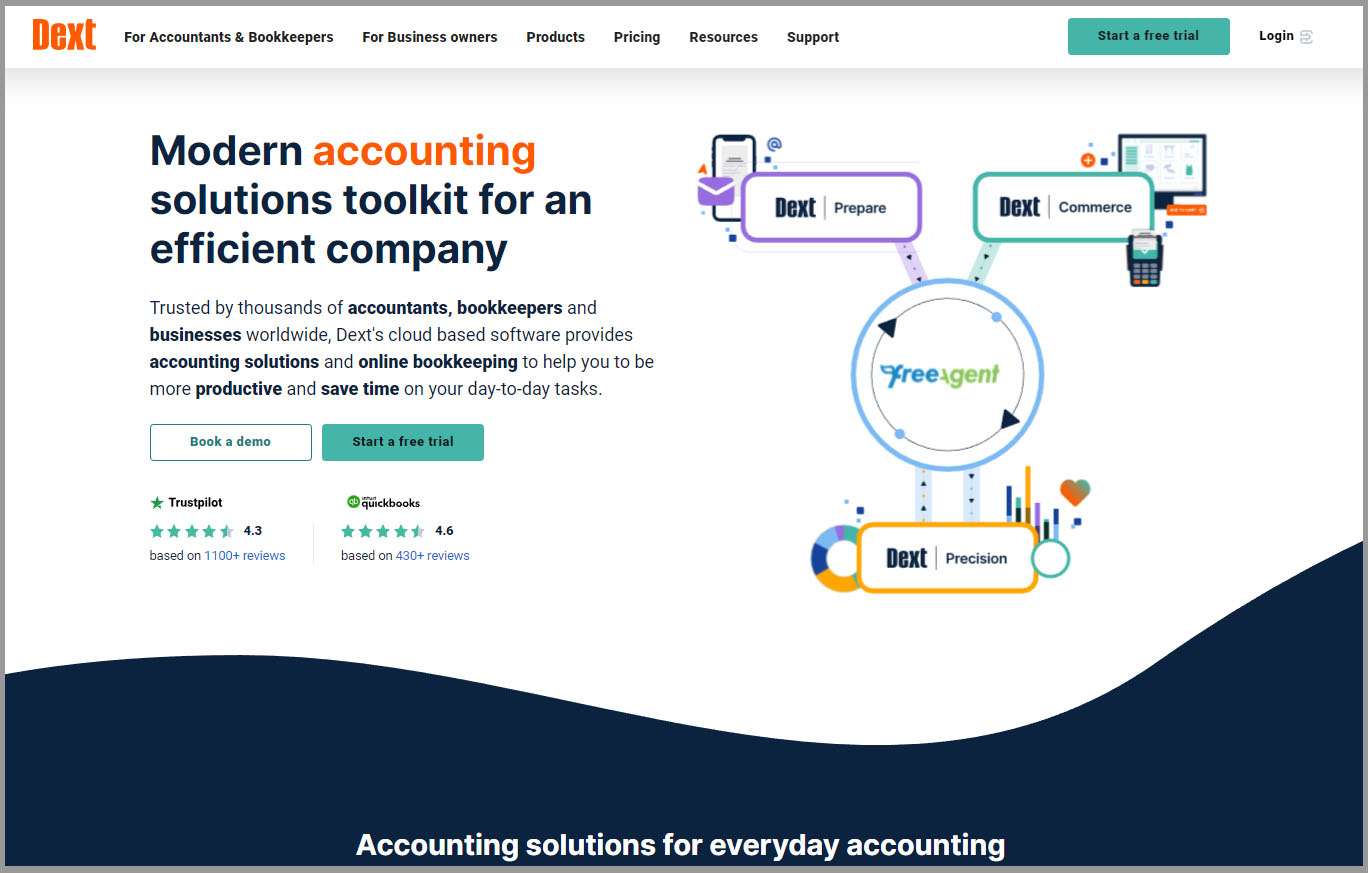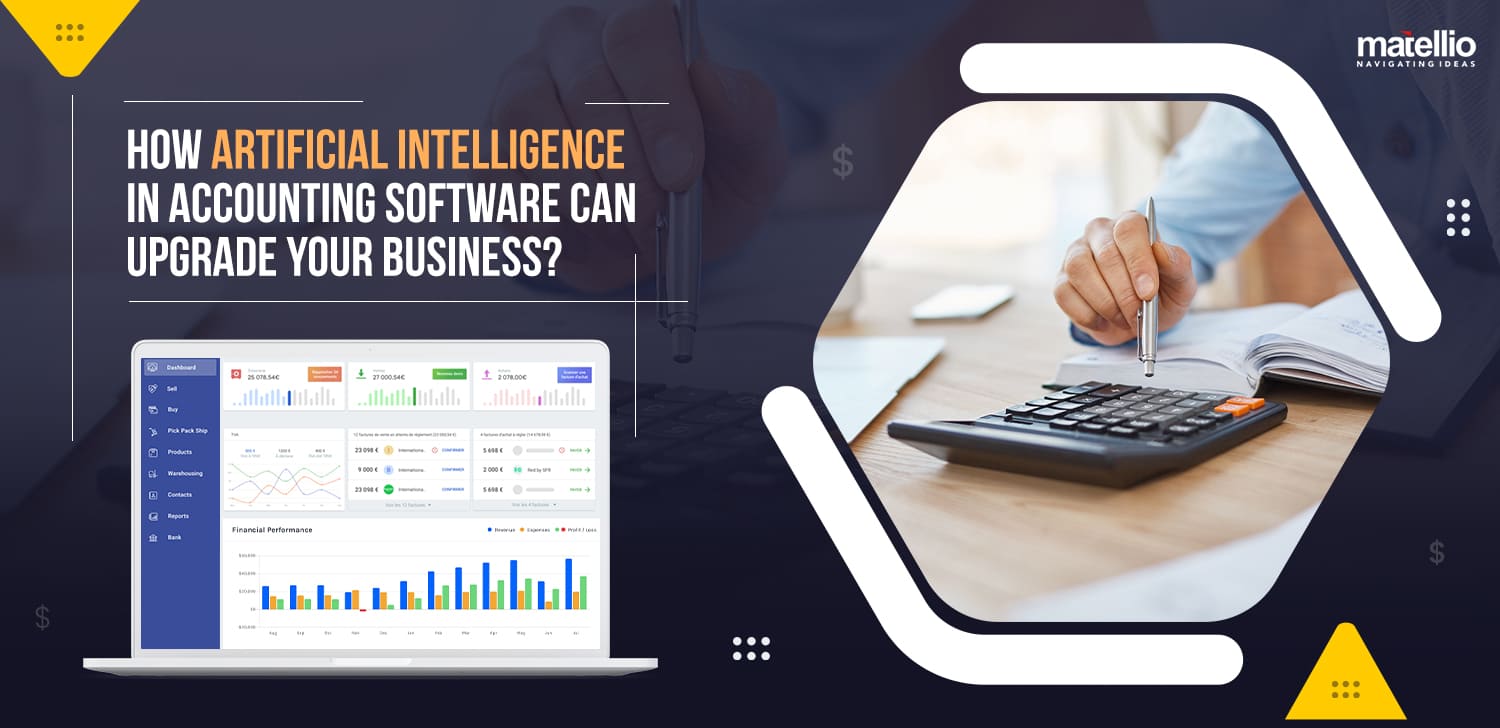AI accounting software is at the forefront of modern financial management, leveraging artificial intelligence to streamline processes and enhance efficiency. As businesses strive to optimize their accounting practices, the integration of AI technology offers a transformative solution.
This innovative software not only simplifies traditional accounting tasks but also ensures accuracy, compliance, and data security, making it a valuable asset for organizations of all sizes.
Overview of AI Accounting Software

AI accounting software utilizes artificial intelligence technology to automate and streamline various accounting processes. This innovative software can perform tasks such as data entry, invoice processing, expense tracking, and financial reporting with minimal human intervention, saving time and reducing errors.
Examples of Popular AI Accounting Software
- Xero: Xero is a cloud-based accounting software that integrates AI technology to offer features like bank reconciliation, invoicing, and financial reporting.
- QuickBooks Online: QuickBooks Online uses AI to automate tasks like categorizing expenses, tracking income, and generating financial reports.
- Sage Intacct: Sage Intacct is an AI-driven accounting software designed for medium to large businesses, offering features like advanced financial management and reporting capabilities.
Benefits of Using AI in Accounting Processes
- Efficiency: AI accounting software can perform repetitive tasks quickly and accurately, freeing up time for accountants to focus on more strategic activities.
- Accuracy: By reducing manual data entry and human errors, AI helps ensure that financial records are more precise and reliable.
- Cost Savings: Automating accounting processes with AI can lead to cost savings by eliminating the need for manual labor and reducing the risk of errors that could result in financial losses.
- Insights and Analytics: AI can analyze large volumes of financial data to provide valuable insights and predictive analytics, helping businesses make informed decisions based on real-time information.
Features of AI Accounting Software
AI accounting software offers a wide range of features that can revolutionize the way financial tasks are managed. Here are some key features that AI accounting software provides:
Automation Capabilities
AI accounting software surpasses traditional methods by automating repetitive tasks such as data entry, categorization, and reconciliation. This automation significantly reduces the time and effort required for these tasks, allowing accountants to focus on more strategic activities.
Data Entry Streamlining
AI software excels in streamlining data entry processes by extracting information from documents, invoices, and receipts automatically. This eliminates manual data entry errors and ensures accuracy in financial records.
Reconciliation Efficiency
AI accounting software can reconcile accounts in real-time, matching transactions and identifying discrepancies swiftly. This capability enhances the accuracy of financial statements and minimizes the risk of errors or fraud.
Advanced Reporting
AI software generates detailed and customizable reports quickly, providing insights into financial performance and trends. With AI analytics, accountants can make informed decisions based on real-time data, improving overall financial management.
Forecasting and Predictive Analysis
AI accounting software utilizes predictive analytics to forecast future financial outcomes based on historical data. This feature enables businesses to make proactive decisions and plan for potential scenarios effectively.
Implementation and Integration
Implementing and integrating AI accounting software into a business can significantly streamline financial processes and improve efficiency. Here are some insights on how to successfully incorporate AI accounting software into your operations:
Implementation Process
- Assess your current accounting processes and identify areas where AI can be most beneficial.
- Choose the right AI accounting software that aligns with your business needs and goals.
- Train your team on how to use the new software effectively to maximize its potential.
- Gradually implement the AI accounting software to avoid disruptions in your day-to-day operations.
Integration with Existing Systems, Ai accounting software
- Ensure compatibility between the AI accounting software and your current systems to facilitate smooth integration.
- Consider any necessary customization or configuration to ensure seamless data flow between systems.
- Integrate the AI accounting software with other business applications to optimize data sharing and analysis.
- Regularly monitor and evaluate the integration process to address any issues or bottlenecks promptly.
Challenges and Solutions
- Resistance to Change: Encourage open communication and provide adequate training to help employees adapt to the new software.
- Data Security Concerns: Implement robust security measures and protocols to protect sensitive financial information.
- Integration Complexity: Work closely with the software provider and IT team to address any integration challenges effectively.
- Cost Management: Develop a clear budget and ROI analysis to ensure cost-effective implementation and utilization of AI accounting software.
Security and Compliance

In the realm of AI accounting software, security and compliance are crucial aspects to consider. The following discusses the measures taken to safeguard sensitive financial data, ensure adherence to accounting regulations, and mitigate associated risks.
Security Measures
AI accounting software employs robust security measures to protect sensitive financial data from unauthorized access or breaches. Encryption techniques are utilized to secure data transmission and storage, ensuring confidentiality and integrity. Access controls, such as multi-factor authentication and role-based permissions, help restrict unauthorized users from accessing critical information. Regular security audits and updates are conducted to identify and address vulnerabilities promptly.
Compliance Assurance
AI accounting software is designed to assist organizations in complying with accounting regulations and standards. The software automates compliance checks, ensuring accurate financial reporting and adherence to regulatory requirements. By leveraging AI algorithms, the software can detect anomalies or discrepancies in financial data, enabling proactive compliance monitoring. Additionally, audit trails and documentation features help organizations demonstrate compliance during regulatory assessments.
Risk Mitigation
While AI in accounting offers numerous benefits, there are inherent risks that need to be mitigated. One significant risk is the potential for algorithm bias, which can lead to inaccurate financial insights or decisions. To mitigate this risk, AI software developers implement bias detection algorithms and ethical guidelines to ensure fair and unbiased outcomes. Additionally, organizations should conduct regular audits and validations of AI algorithms to maintain accuracy and reliability. Training staff on AI ethics and best practices can also help mitigate risks associated with AI in accounting.
Final Wrap-Up

Embracing AI accounting software empowers businesses to navigate the complexities of financial management with ease and precision. By harnessing the capabilities of artificial intelligence, organizations can unlock new levels of productivity and strategic decision-making in the realm of accounting.
